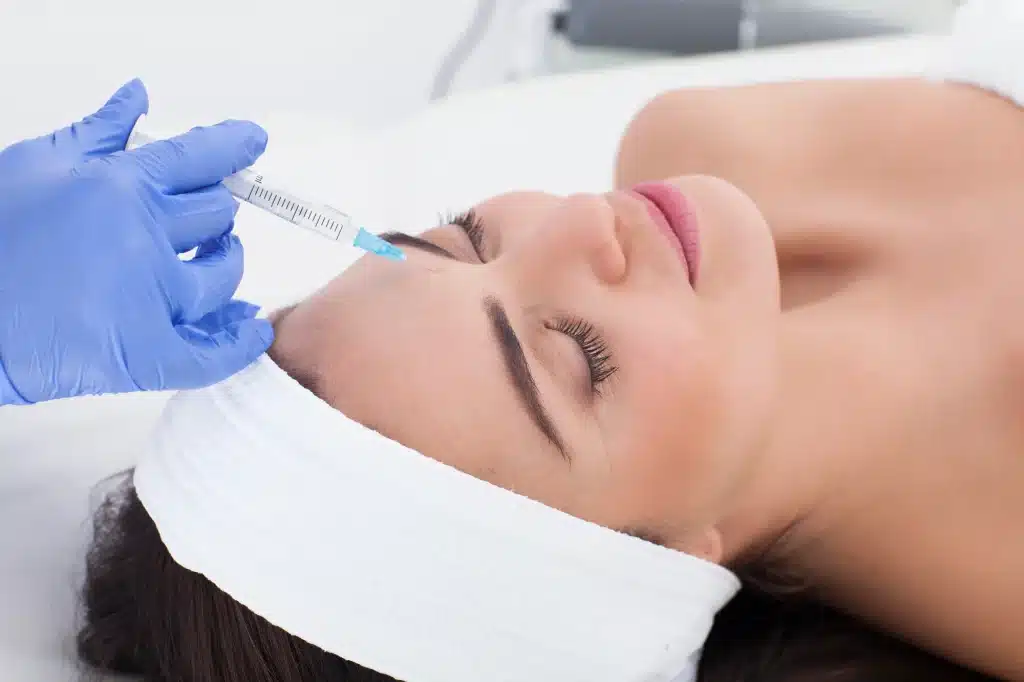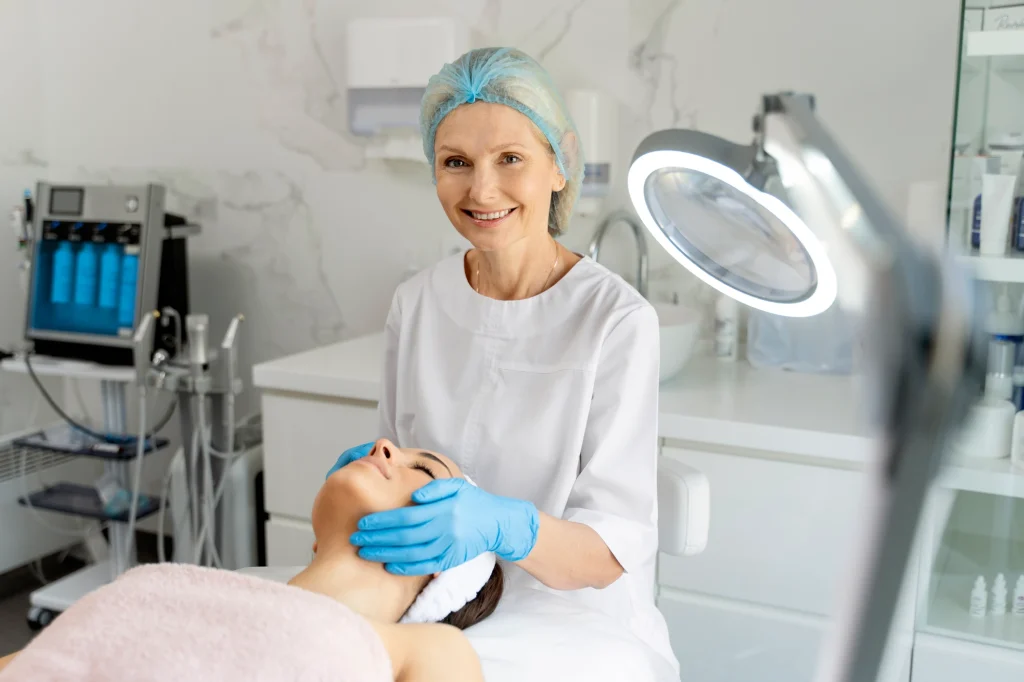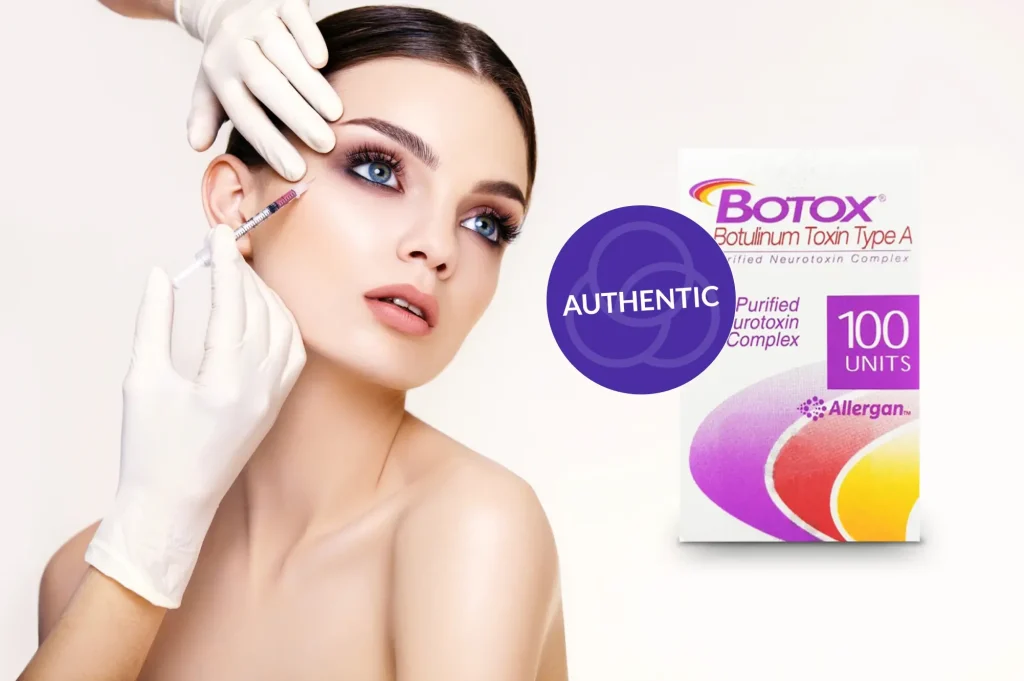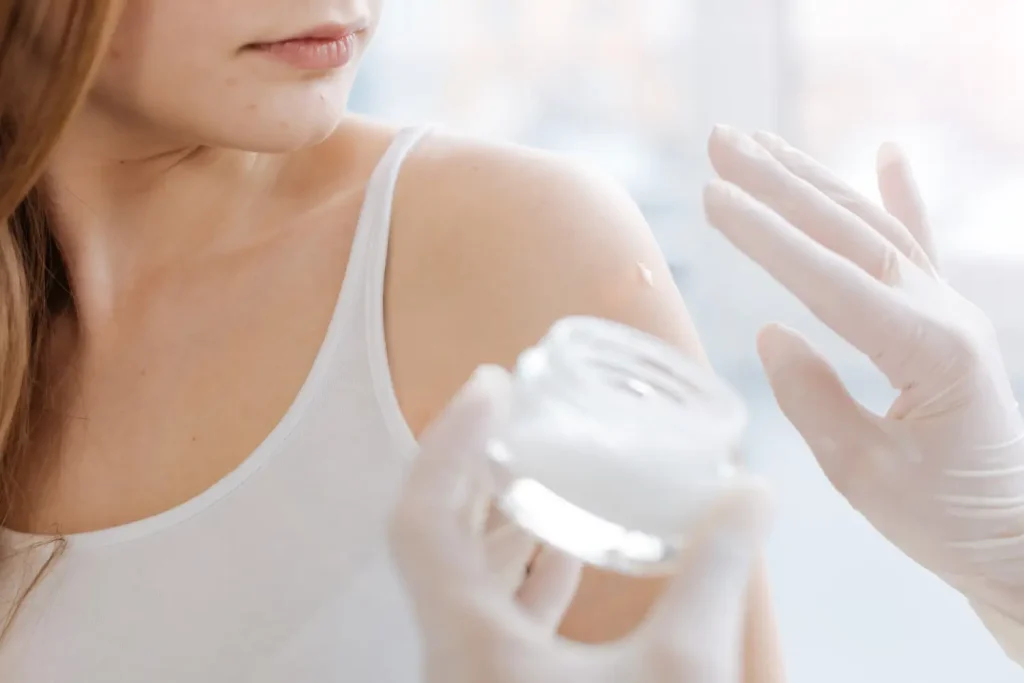Cosmetic procedures have become a common path to achieving desired aesthetics, but their true magic often lies in the careful aftercare that follows. In this article, we delve into the world of popular treatments like chemical peels, microneedling, Botox and dermal fillers, radiofrequency skin tightening, and laser skin resurfacing. Discover why proper post-procedure skin care is paramount to ensuring a smooth recovery and optimal results for all these procedures.
Chemical Peels
Chemical peels employ a range of acids, including alpha hydroxy acids (AHAs), beta hydroxy acids (BHAs), or trichloroacetic acid (TCA), to exfoliate the skin. These acids disrupt the connections between surface dead skin cells, facilitating their removal. Additionally, chemical peels trigger the skin’s innate healing mechanism, promoting accelerated cell turnover.
Why Is Aftercare Important?
- After chemical peels, the skin becomes more vulnerable to damage and infection;
- Chemical peels temporarily compromise the skin’s protective barrier;
- Chemical peels can increase the risk of hyperpigmentation.
Skin Care Recommendations
- Hydration
Advise patients to keep their skin well-hydrated by using a gentle, non-alcoholic moisturizer.
- Sun Protection
Emphasize the importance of sun protection with broad-spectrum sunscreen (SPF 30 or higher) to prevent sunburn and hyperpigmentation.
- Avoid Irritants
Recommend avoiding harsh skin care products, like alpha hydroxy acids (AHAs) and retinoids, until the skin has fully healed.
- Gentle Cleansing
Suggest using a mild, fragrance-free cleanser for gentle cleansing.
- Minimize Makeup
Encourage patients to minimize makeup usage until their skin has healed completely.
Microneedling
Microneedling is a cosmetic technique that employs a specialized device featuring tiny needles to deliberately induce controlled micro-injuries within the skin. Although it may seem contradictory, the purpose of these controlled injuries is to activate the skin’s innate healing mechanisms and enhance collagen production.
Why Is Aftercare Important?
During a microneedling treatment, the device creates thousands of tiny, superficial punctures on the skin’s surface. These micro-injuries trigger the body’s wound-healing response. Microneedling weakens the skin’s natural protective barrier, making it essential to maintain cleanliness to reduce infection risk. Additionally, since microneedling increases skin sensitivity to UV radiation, shielding the treated area from direct sunlight is vital.
Skin Care Recommendations
- Post-Procedure Kit
Provide patients with a skin care post-procedure kit containing a gentle cleanser, a hyaluronic acid serum, and a healing moisturizer.
- Avoid Sun Exposure
Stress the importance of sun protection and recommend avoiding direct sunlight for the first two days post-treatment.
- Avoid Irritants
Instruct patients to avoid using retinoids, alcohol-based products, and vitamin C after microneedling for several days. Chemical peel after microneedling is not advised either.
- Keep the Skin Clean
Emphasize the need for proper skin hygiene and encourage patients to cleanse their face gently.
Botox/Dermal Filler Injections
Botox injections, similarly to dermal fillers, are widely sought-after non-invasive cosmetic treatments which improve facial aesthetics and diminish visible effects of aging. Botox use for cosmetic enhancement entails the administration of the botulinum toxin to ease facial muscle tension, also causing the result of minimizing wrinkle formation. In contrast, other dermal fillers, including Sculptra, employ substances such as hyaluronic acid to volumize and replenish facial regions, rejuvenating and re-introducing a more youthful appearance.
Why Is Aftercare Important?
After receiving beauty injections, following proper dermal filler skin care to ensure optimal results and reduce potential side effects is essential. These procedures involve injections into the skin, disrupting the skin’s natural barrier and leading to temporary side effects like swelling, redness, and bruising. Proper skin care after Botox can help alleviate these issues and ensure the best outcome.
Skin Care Recommendations
- Ice and Gentle Pressure
Skin care after fillers includes applying ice packs and gentle pressure, which can help reduce swelling and discomfort. Patients should be advised to avoid applying excessive pressure or massaging the treated areas to prevent the unintended spread of the injected substances.
- Cold Compresses
Suggest intermittently using cold compresses in the first 24 hours to alleviate discomfort and minimize swelling. Patients should be reminded not to apply ice directly to the skin to prevent frostbite.
- Skin Care Products
Instructing patients to avoid using skin care products that may irritate the treated areas is essential. This includes several days of avoiding harsh skin resurfacing products, retinoids, and alcohol-based products.
- Sun Protection
Stress the importance of sun protection. UV radiation can affect the skin’s healing process and potentially lead to complications. Patients should be advised to use sunscreen with high SPF or avoid direct sunlight for at least 48 hours.
Radiofrequency Skin Tightening
RF skin tightening is a non-surgical cosmetic technique employing radiofrequency energy to gently heat the deeper layers of the skin. This precise warming action triggers collagen production, resulting in a more youthful appearance with improved skin tightness and firmness.
Why Is Aftercare Important?
Improper use of RF devices at excessive temperatures can potentially harm the skin, resulting in burns, blisters, or scarring. Like any skin procedure, inadequate sanitation poses an infection risk, highlighting the importance of aftercare to ensure cleanliness and protection. RF skin tightening might induce redness, swelling, and discomfort, but diligent aftercare helps alleviate these symptoms, facilitating a smoother recovery. Additionally, RF treatment increases the skin’s sensitivity to sunlight, emphasizing the need for post-procedure sunscreen usage and general sun avoidance to prevent sunburn and damage.
Skin Care Recommendations
- Avoid Sun Exposure
Encourage patients to use sunscreen with a minimum SPF 30 and protective clothing.
- Gentle Cleansing
Suggest gentle cleansing to avoid irritation.
- Hydration
Emphasize the importance of keeping the skin hydrated with a post-procedure moisturizer.
- No Harsh Products
Advise against using harsh skin care products or skin resurfacing creams for a few days post-treatment.
Laser Skin Resurfacing
Laser skin resurfacing is a cosmetic treatment aimed at enhancing skin appearance and texture. It applies laser technology to precisely eliminate the outermost layers of skin. Doing so triggers the body’s innate healing mechanisms and promotes the development of fresh, more vibrant skin cells.
Why Is Post-Laser Skin Care Important?
Laser skin resurfacing damages the outermost layers of the skin using controlled laser energy. The extent of damage and depth of penetration depend on the type of laser used, with more aggressive lasers causing deeper damage. Proper skin care after laser treatment is essential for several reasons:
- Infection Prevention;
- Reducing Complications (scarring or hyperpigmentation);
- Promoting Healing;
- Enhancing Results;
Skin Care Recommendations:
- Sun Protection
Stress the necessity of strict sun protection for several weeks post-procedure.
- Cool Compress
Recommend using a cool compress to alleviate discomfort and reduce swelling.
- Avoid Irritants
Instruct patients to avoid harsh skin care products and retinoids for at least two weeks.
- Moisturize
Suggest a gentle, hydrating moisturizer to maintain skin moisture and post-laser cream.
Conclusion
The world of cosmetic procedures offers a range of transformative options, but their true success hinges on diligent post-procedure care. Whether it’s chemical peels, microneedling, Botox, dermal fillers, radiofrequency skin tightening, or laser skin resurfacing, proper aftercare is paramount for a smooth recovery and optimal results. From protecting against infection to reducing discomfort and maintaining the skin’s health and appearance, these aftercare recommendations are essential for ensuring optimal procedure outcomes.
FAQ
What is the best skin care after surgery?
Effective post-surgery skin care entails heeding medical recommendations, ensuring cleanliness around the surgical site, refraining from abrasive products, hydrating the skin, applying sunblock, maintaining adequate hydration, and treating your skin delicately.
What do post-treatment skin care products include?
Products for post-treatment skin care usually include mild facial cleansers, moisturizers, high-SPF sunscreens, and other products advised by a healthcare provider, like creams or antibiotics.
What does post-procedure skin care mean?
Post-procedure skin care refers to the skin care regimen and precautions taken after a medical or cosmetic procedure to promote proper healing, reduce complications, and optimize the results. It includes wound care, sun protection, hydration, avoiding irritants, medication use if necessary, and follow-up visits.
References
- Vedamurthy M; IADVL Dematosurgery Task Force. Standard guidelines for the use of dermal fillers. Indian J Dermatol Venereol Leprol. 2008;74 Suppl:S23-S27.
- Shetty MK; IADVL Dermatosurgery Task Force. Guidelines on the use of botulinum toxin type A. Indian J Dermatol Venereol Leprol. 2008;74 Suppl:S13-S22.
- Alster TS, Graham PM. Microneedling: A Review and Practical Guide. Dermatol Surg. 2018;44(3):397-404. doi:10.1097/DSS.0000000000001248
- Chu S, Foulad DP, Atanaskova Mesinkovska N. Safety Profile for Microneedling: A Systematic Review. Dermatol Surg. 2021;47(9):1249-1254. doi:10.1097/01.DSS.0000790428.70373.f6
- Samargandy S, Raggio BS. Skin Resurfacing Chemical Peels. In: StatPearls. Treasure Island (FL): StatPearls Publishing; May 1, 2022.
- Jourdan M, Madfes DC, Lima E, Tian Y, Seité S. Skin Care Management For Medical And Aesthetic Procedures To Prevent Scarring. Clin Cosmet Investig Dermatol. 2019;12:799-804. Published 2019 Oct 25. doi:10.2147/CCID.S218134





















